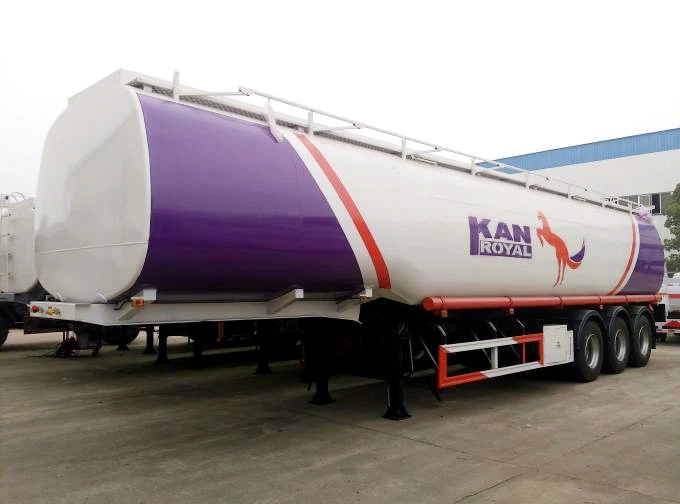Ultimate Guide to Dump Truck Preventive Maintenance Checklist

Dump trucks are indispensable in the construction and transportation industries, ensuring that materials are efficiently moved from one location to another. However, to maintain optimal performance and extend their lifespan, regular preventive maintenance is crucial. This guide will provide a comprehensive dump truck preventive maintenance checklist, offering practical tips and examples for each aspect of maintenance.
Understanding Preventive Maintenance
Preventive maintenance includes regular inspections and servicing to prevent breakdowns and extend equipment life. This proactive approach not only reduces repair costs but also ensures safety standards. Implementing a structured checklist helps in identifying potential issues before they develop into significant problems.
Benefits of Preventive Maintenance
- Increased safety for operators and the public
- Reduced downtime and increased productivity
- Lower overall repair costs
- Extended equipment lifespan
- Improved resale value
The Importance of a Dump Truck Preventive Maintenance Checklist
A preventive maintenance checklist serves as a systematic approach to ensure all components of the dump truck are regularly checked and maintained. This checklist is vital for:
1. Ensuring Safety
Regular inspections can identify safety hazards, reducing the chance of accidents.
2. Enhancing Performance
Ensuring all truck components are in good condition helps maintain optimal performance.
3. Cost Efficiency
Preventing small issues from becoming large repairs can save substantial amounts of money.
Components of the Dump Truck Preventive Maintenance Checklist
1. Daily Inspection Items
Conducting daily inspections is essential for immediate identification of potential issues. Here is a list of items to check daily:
| Inspection Item | Description |
|---|---|
| Fluid Levels | Check engine oil, coolant, hydraulic fluid, and transmission fluid levels. |
| Tires | Examine tire pressure, tread wear, and for any bulges or damages. |
| Brakes | Inspect brake fluid levels and listen for any unusual sounds. |
| Lights | Check headlights, tail lights, and turn signals for functionality. |
| Cleanliness | Ensure the cab and exterior are clean, especially for visibility. |
Daily Checklist Tips
- Use a visual inspection guide to ensure nothing is missed.
- Document daily checks in a maintenance log for accountability.

2. Weekly Maintenance Tasks
In addition to daily inspections, certain tasks should be performed weekly. These include:
| Task | Description |
|---|---|
| Check Battery | Inspect battery terminals for corrosion and ensure it is securely mounted. |
| Inspect Belts and Hoses | Look for wear signs and leaks in hoses; replace as necessary. |
| Examine Fluid Leaks | Check under the truck for any pooling fluids, indicating leaks. |
| Check Air Filter | Inspect air filter for dirt and blockage, clean or replace as needed. |
| Inspect Chassis and Suspension | Look for signs of damage or wear in the chassis and suspension components. |
Weekly Checklist Tips
- Detail all findings and immediate actions taken in a maintenance record.
- Stay organized by categorizing maintenance tasks into weekly and monthly schedules.
3. Monthly Maintenance Procedures
Monthly maintenance is more comprehensive and should include the following:
| Procedure | Description |
|---|---|
| Change Engine Oil | Replace oil and filter to ensure the engine operates smoothly. |
| Grease Points | Lubricate all grease fittings on the truck to maintain moving parts. |
| Inspect Tires | Rotate tires for even wear and check for proper alignment. |
| Check Transmission Fluid | Inspect and top up transmission fluid per manufacturer guidelines. |
| Examine Exhaust System | Check for leaks or damages in the exhaust system. |
Monthly Checklist Tips
- Schedule maintenance during off-peak hours to minimize downtime.
- Consider digital tracking tools for reminders on upcoming maintenance tasks.
4. Seasonal Maintenance Checks
Seasonal checks help prepare your dump truck for changing weather conditions. Here are essential considerations:
| Season | Checks/Tasks |
|---|---|
| Spring | Check air conditioning, inspect for winter weather damage. |
| Summer | Inspect cooling systems, check for proper functioning of HVAC systems. |
| Fall | Prepare for winter by checking tire tread and inspecting antifreeze. |
| Winter | Ensure battery is strong, check heater function, inspect for ice or snow buildup. |
Seasonal Checklist Tips
- Create a seasonal maintenance calendar for easy tracking.
- Train operators to report seasonal challenges that may affect the truck’s performance.
5. Documentation and Record Keeping
Maintaining detailed records of inspections and repairs is vital for tracking performance over time. Key documentation practices include:
- Creating a maintenance log that includes dates, tasks performed, and parts replaced.
- Keeping digital backups for easy access and sharing with team members.
- Ensuring compliance with any regulatory requirements regarding vehicle maintenance.
Effective Documentation Tips
- Use cloud storage for easy access to records from any device.
- Regularly review records to identify patterns in repairs and maintenance needs.

6. Training Operators on Maintenance Practices
Operators play a crucial role in preventive maintenance. Their training should include:
Operator Responsibilities
Operators should be trained to perform daily inspections and report issues promptly. They should also understand the importance of the maintenance checklist.
Regular Training Sessions
Consider holding regular training sessions to keep operators informed about maintenance best practices and new technologies.
Feedback Mechanisms
Implement a feedback loop for operators to share insights on truck performance and procedures, enhancing overall maintenance processes.
Dump Truck Maintenance Best Practices
- Establish a routine: Following a consistent schedule ensures nothing is overlooked.
- Use high-quality parts: Invest in genuine parts when replacements are necessary to maintain performance.
- Stay updated on manufacturer recommendations: Regularly review the owner’s manual for upkeep requirements.
- Explore fleet management software: Invest in software that tracks maintenance schedules and alerts users of upcoming tasks.
FAQ Section
1. How often should a dump truck undergo preventive maintenance?
Dump trucks should ideally have daily, weekly, and monthly inspections, in addition to seasonal checks based on weather conditions.
2. What are the main benefits of using a preventive maintenance checklist?
A preventive maintenance checklist helps ensure safety, improve performance, save costs, and extend the lifespan of the dump truck.

3. Can operators perform maintenance tasks, or should only trained mechanics do this?
Operators can perform basic inspections and maintenance tasks like checking fluids and tire pressure, but more complex tasks should be handled by trained mechanics.
4. What should I do if I find a problem during an inspection?
If you identify an issue during an inspection, document it immediately, and arrange for repairs as needed to prevent worsening the problem.
5. Is it necessary to keep maintenance records for regulatory compliance?
Yes, keeping detailed maintenance records can help demonstrate compliance with regulations and assist during inspections.
6. How can I train my employees on preventive maintenance practices?
Consider formal training sessions, on-the-job training, and regular workshops to ensure employees are knowledgeable about preventive maintenance tasks.
